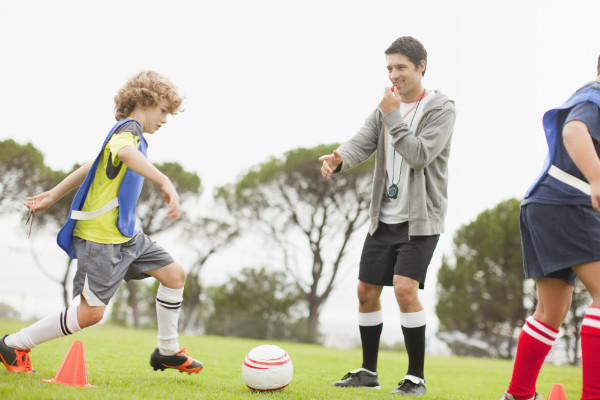The Risks, Rewards and Safety in Practicing Organized Sports

The Right Time for Sports
Dr. Crawford says most kids become emotionally and physically mature enough to engage in organized sports at the age of 6 or 7, while younger children should focus on general play. The American Academy of Pediatrics recommends every child receive an annual pre-participation evaluation (PPE) to help determine his or her readiness to play sports and uncover underlying conditions that could limit participation.
The Risks
The frequency and severity of sports-related injuries increase with a child’s age. Contact sports have higher rates of injury, according to recent studies. Competitive and year-round sports have a higher risk of overuse injuries from repetitive motions, such as pitching in baseball. The most common types of sports related injuries in children are sprains, muscle strains, bone injuries, and heat-related illness. Although it is rare, brain injury is the leading cause of sports-related deaths in children.
Play It Safe
Young athletes should drink water before, during, and after practice to prevent dehydration, heat exhaustion, and heat stroke. Warming up and stretching before play prevents sports-related injuries like muscle tears or sprains. Parents should always ensure children wear appropriate, properly fitted sports equipment and protective gear, during both practice and competitive play.
Focus on Fun
Despite parents’ or kids’ wishes, not every child is destined to be the next Simone Biles or J.J. Watt. Dr. Crawford recommends parents and coaches focus on child athletes’ development, participation, and team building—not just the final score— with those up to the middle-school level. “Your child should try a variety of activities, like sports, theater, and music,” says Dr. Crawford. “That way, you and your child can best figure out what activities they like the best.” And that’s a winning formula for everyone.
Contact Us
To contact Children's Memorial Hermann Hospital, please fill out the form below.
You!
Thank you for contacting Children’s Memorial Hermann Hospital. We have received your inquiry, and a team member will contact you soon.
If you need more immediate assistance, please call us at (713) 704-KIDS (5437).